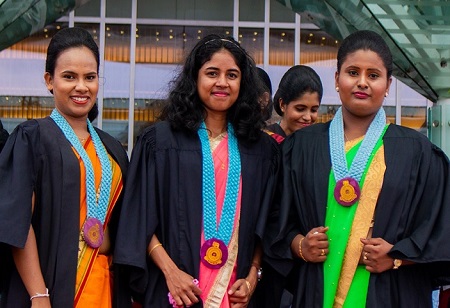Sri Lanka's cabinet of ministers has endorsed President Ranil Wickremesinghe's proposal to establish a University of Science & Technology through a public-private partnership with a U.S. university. The Government Information Department's statement mentioned the selection of a partner university from various U.S. institutions, including UC Berkeley, UC Riverside, UC Davis, and the University of Michigan. The initiative aims to collaborate with a prestigious U.S. university to lay the groundwork for producing proficient professionals to lead key sectors in new scientific discoveries, technological innovation, and sustainable development. The importance of establishing a University of Science and Technology with the backing of a renowned U.S. university has been acknowledged. This initiative aims to lay the groundwork for cultivating a cadre of skilled professionals to spearhead critical sectors such as new scientific discoveries, technological innovation, and sustainable development.
Such a university will offer the chance to employ contemporary methodologies, promote international academic connections, and foster a conducive environment for research and development, according to the statement. Education Minister Susil Premajayantha has announced that Sri Lanka will establish minimum standards for private university degrees, akin to those for state universities, through a unit within the proposed new education commission. This measure aims to ensure high quality while fostering private investments. The initiative faces strong opposition from undergraduate unions in state universities and left-leaning political parties, asserting that it will lead to the migration of top academics from state universities to private institutions.
The 2024 budget outlines intentions for Sri Lanka to permit any globally recognized educational institution to establish universities in the country, contingent upon the implementation of robust rules and regulations for overseeing non-state universities. This measure is aimed at attracting increased foreign investment in education and minimizing the outflow of funds spent by individuals sending their children abroad for higher education.

